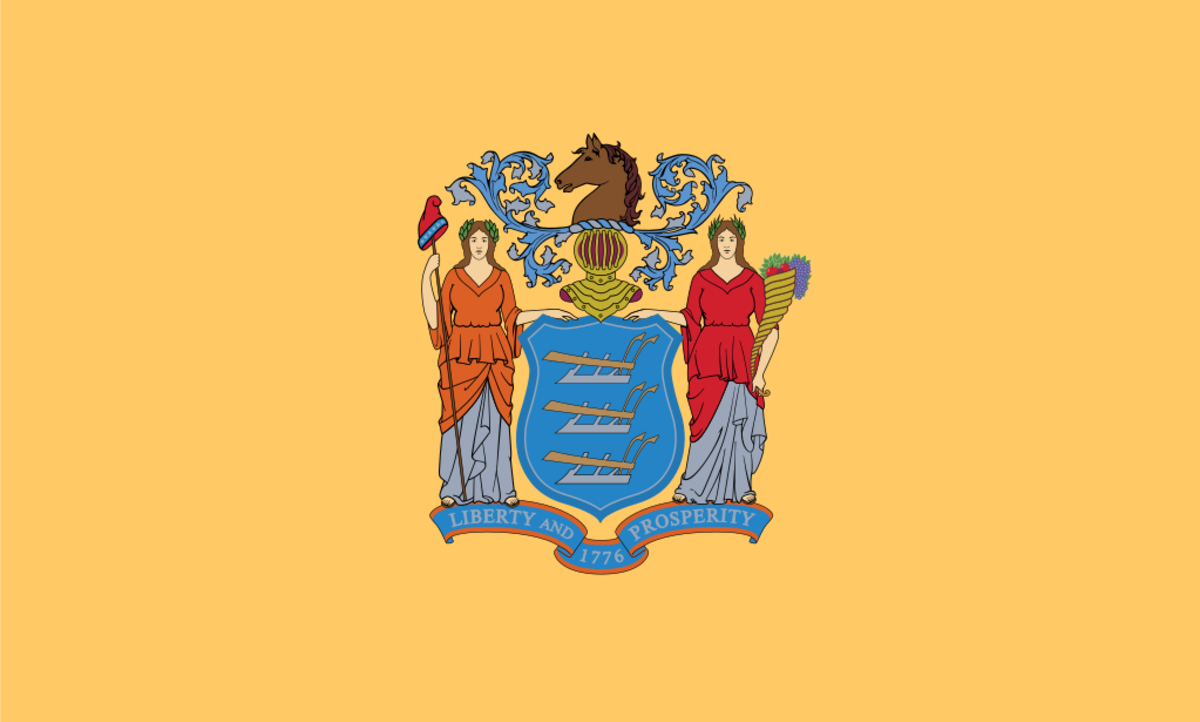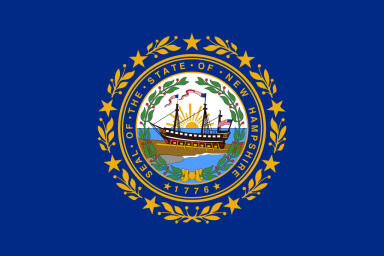New Jersey Workers’ Comp Laws

In New Jersey, workers' compensation laws provide important protection for employees injured or ill as a result of their work. These laws require most employers in the state to carry workers' compensation insurance, which offers benefits such as medical treatment, wage replacement, and disability payments to workers who are hurt on the job.
Unfortunately, workplace injuries and illnesses remain a significant problem in New Jersey despite these protections. According to data from the U.S. Bureau of Labor Statistics, over 75,000 non-fatal workplace injuries and illnesses were reported in 2020, with the highest rates of injury occurring in industries such as construction, manufacturing, and healthcare.
As these statistics illustrate, workers' compensation laws are a crucial safeguard for employees in New Jersey. This article will examine these laws and explore what injured workers need to know to protect their rights and access the benefits they deserve.
Employer Coverage Requirements in New Jersey
All employers in New Jersey must provide workers' compensation insurance for their employees or be approved for self-insurance. This means that if an employee suffers a work-related injury or illness, their employer's workers' compensation insurance should provide benefits to cover medical expenses and lost wages.
Under New Jersey law, every employer must have workers' compensation insurance coverage, regardless of the number of employees or the type of business. The only exception to this requirement is for sole proprietors under certain circumstances or partners in a business without employees.
An employer’s failure to provide workers’ compensation coverage for their employees can result in fines, penalties, and legal liability for any injuries or illnesses their employees suffer on the job. If an employer does not carry workers' compensation insurance as legally mandated, an employee can file a claim with the state's Uninsured Employer's Fund to receive workers' compensation benefits.
How Employee Eligibility is Determined in New Jersey
In New Jersey, "employee eligibility" refers to the criteria employees must meet to be eligible for workers' compensation benefits. In general, all employees in New Jersey are covered by workers' compensation laws, regardless of their job title, industry, or how long they have worked for the employer.
The following list details some key points about employee eligibility under New Jersey’s workers’ compensation laws:
Work-Related Injury or Illness: In New Jersey, employees can only receive workers' compensation benefits if their injury or illness is directly related to their work and occurred while on the job. This includes injuries or illnesses when employees perform their duties or while on the employer's premises.
Notice to Employer: In New Jersey, employees must report work-related injuries or illnesses to their employer as soon as possible but no later than 90 days after the injury or illness occurs. Failure to report the injury or illness within this timeframe can result in losing workers' compensation benefits.
Eligibility for Part-Time Employees: Part-time employees in New Jersey are eligible for workers’ compensation benefits even if they only work a few hours a week.
Independent Contractors: Generally, independent contractors are not eligible for workers' compensation benefits because they are not considered employees. However, there are situations where an independent contractor may be regarded as an employee for workers' compensation purposes, such as if they are working under a contract that makes them an employee or if the employer exercises significant control over their work.
Covered Injuries and Illnesses Under New Jersey Law
New Jersey law states that injuries or illnesses that fall under specific categories are eligible for workers' compensation benefits if they arise out of and during employment.
Work-Related Injuries: Workers' compensation insurance typically covers any injury an employee suffers while performing their job duties. This includes damages caused by accidents, such as falls or machinery malfunctions, and injuries from repetitive motion, like carpal tunnel syndrome.
Occupational Diseases: Diseases that fall under this category are illnesses caused by exposure to harmful substances or conditions in the workplace. These can include respiratory diseases, such as mesothelioma from exposure to asbestos, or skin conditions from exposure to chemicals.
Mental Stress Injuries: In New Jersey, employees may be eligible for workers’ compensation benefits for mental stress injuries that result from work-related events, such as witnessing a traumatic incident at work or being subjected to ongoing harassment or discrimination.
Aggravation of Pre-Existing Conditions: If a work-related injury aggravates a pre-existing condition, the employee may be eligible for workers’ compensation benefits to cover the costs of medical treatment and lost wages.
How Dispute Resolution Works in New Jersey
Dispute resolution refers to resolving disagreements or disputes between an injured worker and their employer or the employer's insurance carrier regarding a workers' compensation claim. The following list details some critical points regarding dispute resolution in New Jersey's workers' compensation system:
Mediation: If a dispute arises from a workers’ compensation claim, the parties may first attempt to resolve the dispute through mediation. Mediation is a process in which a neutral third party helps the parties reach an agreement. The mediator does not make a decision but instead facilitates a discussion between the parties to help them come to a mutually acceptable solution.
Informal Hearing: If mediation is unsuccessful, the parties may request an informal hearing before a workers' compensation judge. Both sides will present evidence and testimony to support their positions at the hearing, and the judge will decide based on the evidence presented.
Formal Hearing: If the parties cannot resolve the dispute after an informal hearing, they may request a formal hearing before a workers' compensation judge. Formal hearings involve more extensive evidence and testimony than informal hearings, and the judge will decide based on the evidence presented.
In some cases, such as medical treatment or benefits disputes, the parties may request a special hearing before a workers' compensation judge with expertise in that area. These hearings are intended to resolve specific conflicts quickly and efficiently.
New Jersey Workers’ Comp Insurance Requirements
New Jersey’s workers’ compensation laws do not specify a specific dollar amount for coverage limited. Instead, they require employers to provide workers with "adequate, prompt, and continuous benefits." This means that the coverage should be sufficient to cover medical expenses and wage replacement for injured employees.
Additionally, workers’ compensation coverage is intended to provide medical benefits to injured workers to cover the cost of necessary medical treatment related to their work-related injury or illness. There is no specific limit on the amount of medical coverage. Instead, New Jersey law states that it should be reasonable and appropriate for the injured worker’s needs.
However, if an employee cannot work due to a work-related injury or illness, they may be entitled to temporary disability benefits. These benefits are generally set at 70% of the worker's average weekly wage. In cases where an employee suffers a permanent disability, they may be eligible for permanent disability benefits. The amount of permanent disability benefits is determined based on the degree of impairment and is subject to statutory maximums.
How Much Can Someone Sue For Workers’ Compensation in New Jersey?
In New Jersey, workers' compensation benefits are generally provided as a no-fault insurance system, meaning injured workers are entitled to certain benefits without proving that their employer was at fault for their injuries. However, this also means that injured workers generally cannot sue their employers for additional damages beyond the workers’ compensation benefits they are entitled to receive.
Although injured workers are generally unable to sue their employers for further damages beyond the benefits received from workers' compensation, there may be a few exceptions where a lawsuit can be pursued. For example, suppose the injury was caused by a third party (someone other than the employer or co-worker). In that case, the injured worker may be able to file a personal injury lawsuit against the responsible party.
What Is the Statute of Limitations in New Jersey for Workers’ Comp Claims?
The statute of limitations for filing a workers’ compensation claim in New Jersey is two years from the date of the injury or last payment of compensation, whichever is later. Therefore, if an injured worker fails to file a claim within two years, they may lose their right to receive benefits.
However, there may be some exceptions to the two-year statute of limitations in certain circumstances. For example, if the injured worker was not immediately aware of their injury or did not immediately realize their injury was work-related, the two years may be extended. Additionally, if the employer or workers' compensation insurance company denies the claim, the injured worker may be granted additional time to file a claim.
New Jersey Workers’ Compensation Benefits
In New Jersey, employees may be eligible for certain benefits if they suffer a work-related injury or illness.
Medical Benefits: If you suffer a work-related injury or illness, you are entitled to medical benefits to cover the costs of necessary medical treatment, including doctor visits, hospitalization, medication, and rehabilitation services.
Temporary Disability Benefits: If you cannot work due to a work-related injury or illness, you may be eligible for temporary disability benefits. These benefits are intended to replace a portion of your lost wages while recovering from your injury or illness and being unable to work. The amount of temporary disability benefits you are eligible for depends on your average weekly wage before your injury or illness.
Permanent Partial Disability Benefits: If you suffer a permanent partial disability due to a work-related injury or illness, you may be eligible for permanent partial disability benefits. These benefits are intended to compensate for the permanent loss of function or impairment caused by your injury or illness.
Permanent Total Disability Benefits: Those who suffer a permanent total disability due to a work-related injury or illness may be eligible for permanent total disability benefits. These benefits provide ongoing financial support if you are permanently unable to work.
Death Benefits: If an employee dies from a work-related injury or illness, their dependents may be eligible for death benefits. These benefits can provide financial support to the deceased employee's dependents, including spouses and children.
Legal Resources for Injured Workers in New Jersey
Understanding the ins and outs of workers' compensation law can be daunting for workers who have been injured on the job in New Jersey. Luckily, many resources are available to help you understand your rights and get the legal assistance you need to file a claim and receive the benefits you are entitled to.
New Jersey Division of Workers’ Compensation
The New Jersey Division of Workers’ Compensation is a government agency responsible for enforcing the state's workers' compensation laws and providing benefits to injured workers. The Division has several offices throughout the state, and its website offers a wealth of information and resources for injured workers who need assistance with workers' compensation claims.
The Division's website provides detailed information about the claims process, including the forms required to file a claim, the types of benefits available, and the deadlines that must be met. The site also provides contact information for the Division's offices throughout the state and links to other resources that may be helpful for injured workers.
Legal Services of New Jersey
Legal Services of New Jersey (LSNJ) is a non-profit organization that provides free legal assistance to low-income individuals and families in New Jersey. LSNJ's staff of attorneys and paralegals specializes in a wide range of legal issues, including workers' compensation. They are committed to providing high-quality legal representation to clients who would otherwise be unable to afford it. They work with clients to help them understand their rights and options under the law and assist them with navigating the legal system to achieve their goals.
LSNJ offers self-help guides, community education, outreach programs, referrals to social service organizations, and training for community-based organizations in addition to providing legal representation.
New Jersey State Bar Association
The New Jersey State Bar Association (NJSBA) is a professional organization of lawyers in New Jersey. The NJSBA provides an abundance of information and resources on its website that can be helpful for injured workers who need assistance with workers' compensation claims. The site includes information about workers' compensation laws and regulations in New Jersey and resources for finding an attorney or other legal assistance.
It's important to note that while the NJSBA can be a valuable resource for injured workers, they are not a substitute for legal advice from an attorney specializing in workers' compensation law. Therefore, if you have questions about your rights to workers' compensation benefits or need assistance with a claim, it's recommended that you consult with an attorney who can provide guidance based on your specific situation.
New Jersey Department of Labor and Workforce Development
The New Jersey Department of Labor and Workforce Development (NJDOL) offers various employment-related services and resources, including workers' compensation. The NJDOL can be a helpful resource for injured workers who have questions about their rights or need assistance filing a workers' compensation claim. Some of these services include the following:
Assistance with filing a workers’ compensation claim, including help with paperwork and answering questions about the claims process
Information about workers’ compensation benefits and eligibility requirements
Assistance with resolving disputes related to workers’ compensation claims
In addition to these services, the NJDOL also provides employment-related resources, such as job training and placement services, unemployment benefits, and workplace safety information.
Expertise.com StaffAuthor
Step into the world of Expertise.com, your go-to hub for credible insights. We don't take accuracy lightly around here. Our squad of expert reviewers, each a maestro in their field, has given the green light to every single article you'll find. From rigorous fact-checking to meticulous evaluations of service providers, we've got it all covered. So feel free to dive in and explore. The information you'll uncover has been stamped with the seal of approval by our top-notch experts.




